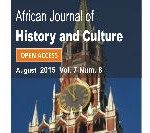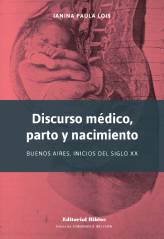19 October 2015
Ending diseases for good have been the goal of several eradication campaigns over the 20th century and are the focus of global projects such as the polio eradication initiative.
Epidemics may change economic structures, social interaction, shape practices of international intervention and attitudes towards healthcare.
This conference brings together historians of medicine and global public health, anthropologists and sociologists with policy makers to think past the conventional narrative curve of epidemics and disease in general. Proposals that address one or several of the following questions are particularly welcome:
- How do states, societies and international organizations prepare for the end of a disease? Do they prepare at all?
- What happens to the disease itself after the end?
- What are the lasting consequences of epidemic diseases that linger on after the end?
- What happens when a disease makes a comeback?
- Who and when decides if a disease is over? Where and for whom do diseases end and who is excluded/forgotten?
- How does the action of determining the “end” of an epidemic (e.g. ebola, polio, etc.) affect those involved: those who fear, those who prepare, those who cure, those who survive?
- What happens if the end of a disease fails to arrive?
Deadline to submit abstracts up to 300 words is December 1, 2015.
Abstracts and queries should be sent to:
Dora Vargha
Postdoctoral Research Fellow
Department of History, Classics and Archaeology
Birkbeck College, University of London
http://www.bbk.ac.uk/reluctantinternationalists
Read about epidemics in HCS-Manguinhos:
Chaple, Enrique Beldarraín. Una batalla ganada: la eliminación de la poliomielitis en Cuba. Hist. cienc. saude-Manguinhos, Set 2015, vol.22, no.3, p.961-983. ISSN 0104-5970
Alcalá Ferráez, Carlos. De miasmas a mosquitos: el pensamiento médico sobre la fiebre amarilla en Yucatán, 1890-1920. Hist. cienc. saude-Manguinhos, Mar 2012, vol.19, no.1, p.71-87. ISSN 0104-5970
Serrón, Víctor. Epidemia y perplejidades médicas:Uruguay, 1918-1919. Hist. cienc. saude-Manguinhos, Set 2011, vol.18, no.3, p.701-722. ISSN 0104-5970
Gachelin, Gabriel and Opinel, Annick. Malaria epidemics in Europe after the First World War: the early stages of an international approach to the control of the disease. Hist. cienc. saude-Manguinhos, June 2011, vol.18, no.2, p.431-470. ISSN 0104-5970
Mónica García, Claudia. Las ‘fiebres del Magdalena’:medicina y sociedad en la construcción de una noción médica colombiana, 1859-1886. Hist. cienc. saude-Manguinhos, Mar 2007, vol.14, no.1, p.63-89. ISSN 0104-5970
Caponi, Sandra. Lo público y lo privado en tiempos de peste. Hist. cienc. saude-Manguinhos, Jun 1999, vol.6, no.1, p.07-28. ISSN 0104-5970
Read, Ian. A triumphant decline?: Tetanus among slaves and freeborn in Brazil. Hist. cienc. saude-Manguinhos, Dec 2012, vol.19, suppl.1, p.107-132. ISSN 0104-5970









